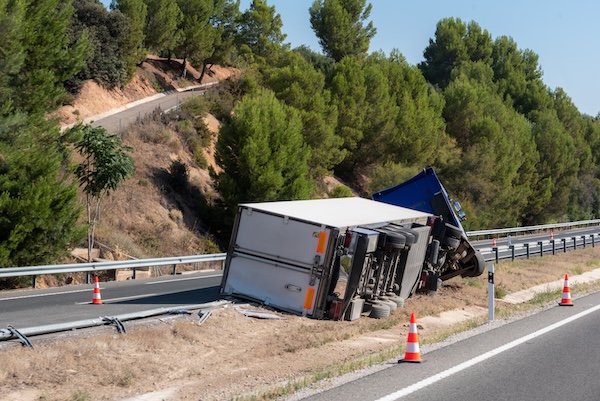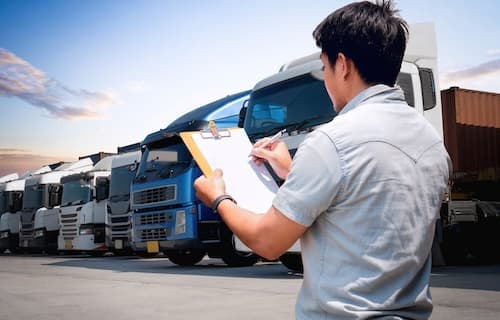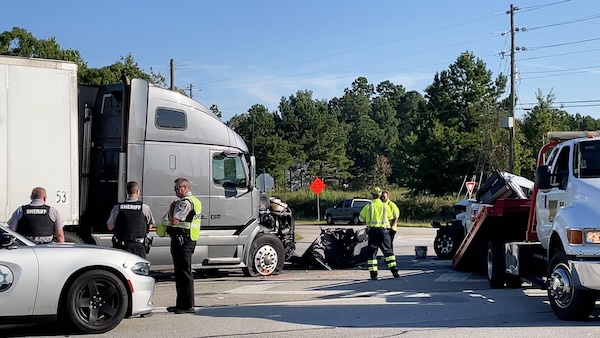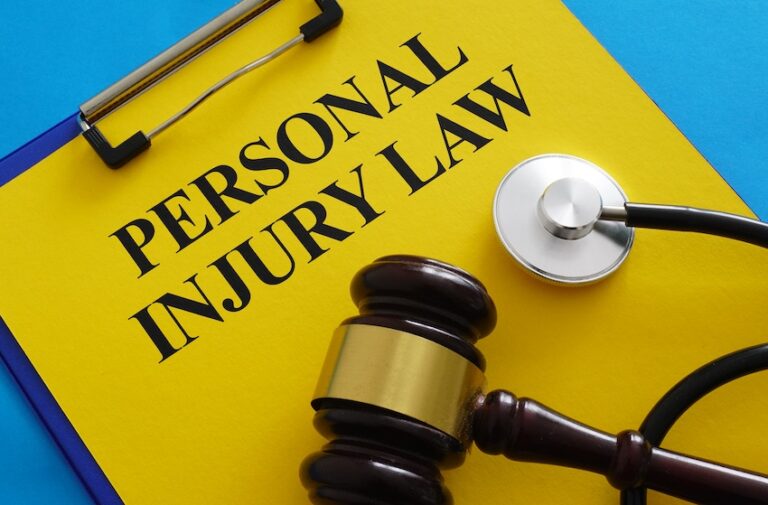Understanding Liability in a Truck Accident Case: Who’s Responsible?
Truck accidents are some of the most devastating incidents on the road. With large, heavy commercial vehicles like semi-trucks involved, the consequences can be life-changing. Whether it’s the destruction of property, serious physical injuries, or loss of life, the aftermath of a truck accident can be overwhelming for victims and their families. One of the most complex aspects of a truck accident case is determining who can be held liable. There are many parties that might share responsibility, making it crucial to understand the nuances of a truck accident case and how liability is assigned.
At Ross Moore Law, our truck accident lawyers are dedicated to helping victims understand their rights and navigate the complexities of truck accident claims. In this blog, we will delve into the key parties who may be held liable in a truck accident case and how liability is determined in these serious incidents.
Overview of Truck Accident Cases
A truck accident case is different from an average car accident case due to the scale of the vehicles involved and the complexities of the trucking industry. Commercial trucks, often weighing 20 to 30 times more than regular passenger vehicles, can cause severe damage in accidents. Truck accidents can result in severe injuries and even fatalities, which often require the involvement of insurance companies, trucking companies, and federal regulations.
In a truck accident case, several factors are taken into account to determine liability, including the driver’s actions, the trucking company’s responsibilities, and even vehicle manufacturers. Given the complexity of these cases, having an experienced truck accident lawyer at your side is crucial to ensure that you receive the compensation you deserve.
Key Parties That Can Be Held Liable in a Truck Accident Case
Determining liability in a truck accident case can be a complicated process, with many factors coming into play. Several parties can be held responsible depending on the circumstances of the accident. Below are the key parties that may share liability:
The Truck Driver
The truck driver is often the first party considered when determining liability in a truck accident case. Just like any other motorist, truck drivers are expected to obey traffic laws and operate their vehicles in a safe manner. However, truck drivers are sometimes responsible for accidents due to factors such as:
- Driver Negligence: If the truck driver is found to be negligent—whether through distracted driving, speeding, fatigue, or driving under the influence of drugs or alcohol—they can be held liable.
- Driver Error: Even experienced drivers can make mistakes. For example, failing to brake in time, misjudging traffic, or improper lane changes can cause accidents.
- Non-Compliance with Regulations: Truck drivers must adhere to federal safety regulations regarding hours of service (HOS), which dictate how long they can drive without rest. Fatigue is a major cause of truck accidents, and violations of HOS rules can lead to driver liability in a truck accident case.
- Improper Maintenance and Inspection: A truck driver may also be held liable for failing to properly inspect the vehicle before hitting the road, as required by law.
Driver logs and maintenance logs can serve as critical evidence in determining whether the truck driver’s actions contributed to the accident. If you’ve been involved in a truck accident, an experienced truck accident lawyer can help you investigate these logs to establish fault.
The Trucking Company
In many cases, the trucking company that employs the driver can also be held liable in a truck accident case. Under the principle of vicarious liability, trucking companies may be responsible for the actions of their drivers, particularly when the driver was acting within the scope of their employment. Several factors can make the trucking company liable:
- Negligent Hiring Practices: If the trucking company hired an unqualified or inexperienced driver, or failed to properly vet the driver’s background and qualifications, they may be held liable for negligence.
- Failure to Provide Proper Training: Trucking companies are responsible for ensuring that their drivers receive adequate training on vehicle operation, safety protocols, and legal requirements. If the company failed to provide sufficient training, they could be held responsible for any accidents caused by driver error.
- Maintenance and Safety Standards: Trucking companies are also responsible for ensuring their vehicles are properly maintained and meet safety standards. If a truck’s mechanical failure (such as faulty brakes or worn-out tires) contributed to the accident, the trucking company could be liable for not maintaining the vehicle properly.
- Pressure to Meet Deadlines: In some cases, trucking companies may pressure drivers to meet tight schedules, leading to dangerous driving practices like speeding, driving while fatigued, or cutting corners on vehicle maintenance.
An experienced truck accident lawyer can help investigate the role the trucking company played in the accident, including whether the company’s policies or actions contributed to the crash.
The Truck Manufacturer
In certain truck accident cases, the manufacturer of the truck or its parts may be liable for the accident. If a defect in the vehicle, such as faulty brakes, tire blowouts, or mechanical failure, caused or contributed to the accident, the manufacturer could be held responsible for designing, manufacturing, or distributing defective products.
- Defective Parts: When a truck is involved in an accident due to faulty parts like a malfunctioning engine or brakes, the manufacturer of the defective part may be held liable.
- Design Defects: If the truck’s design itself is flawed, making it prone to accidents, the manufacturer can be held liable for any crashes that result from the design flaw.
In these cases, your truck accident attorney can help gather critical evidence, such as black box data, maintenance records, and expert testimony, to determine if a defective part or vehicle design played a role in the crash.
The Cargo Loaders
In some truck accident cases, liability may fall on the individuals or companies responsible for loading the truck. Improperly loaded cargo can significantly affect a truck’s handling and stability, leading to accidents. If the load is unbalanced or too heavy, it can cause the truck to tip over, jackknife, or lose control.
- Improper Loading: If cargo is improperly loaded or the truck is overweight, this can cause the driver to lose control of the vehicle, leading to a truck accident.
- Cargo Spills: If the cargo is not properly secured, it could spill onto the road, causing a hazard for other drivers.
Cargo loaders may be held liable for ensuring that the load is safely secured and meets weight distribution standards.
Insurance Companies
While insurance companies are not typically held liable for the accident itself, they play a critical role in determining liability and managing the claims process. The trucking company’s insurance provider and the truck driver’s personal insurance may be involved in settling the claim, covering damages, and negotiating compensation for truck accident victims.
- Claims Process: Insurance companies often work to minimize payouts, making it important for truck accident victims to have an experienced truck accident attorney to represent their interests during settlement negotiations.
- Negligence and Liability Determination: Insurance companies will examine the evidence—driver logs, maintenance records, accident scene evidence—to determine fault and liability.
It’s essential to consult a knowledgeable truck accident lawyer who can guide you through the claims process, ensuring that all parties responsible are held accountable and that you receive fair compensation.
Factors That Impact Liability in a Truck Accident Case
Several factors can influence who is held liable in a truck accident case. The nature of the accident, the behavior of the truck driver, the condition of the vehicle, and the involvement of other vehicles or third parties can all impact the case’s outcome.
- Truck Driver Negligence: Proving negligence is often key in truck accident cases. If a truck driver was speeding, under the influence, or distracted, their actions could be the main factor in determining liability.
- Maintenance and Safety Standards: Failure to adhere to proper maintenance schedules and safety standards can significantly increase the risk of an accident. If a trucking company or driver fails to maintain the vehicle properly, they can be held responsible for any resulting damages.
- Federal Law: Trucking companies and drivers are regulated by federal laws, including the Federal Motor Carrier Safety Administration (FMCSA) regulations. Violations of these laws, such as exceeding the maximum hours of service, can contribute to liability.
The Claims Process in a Truck Accident Case
After a truck accident, the claims process can seem overwhelming, but understanding the steps involved can make it easier to navigate:
- Seek Medical Attention: The first priority after any accident is to seek medical care, especially for physical injuries. Medical records will play a key role in determining the extent of your injuries and the compensation you may be entitled to.
- Gather Evidence: If you can, take photos of the accident scene, damage, and any injuries. Collect witness statements, accident reports, and black box data from the truck.
- Hire an Experienced Truck Accident Lawyer: An experienced truck accident lawyer will help you collect critical evidence, investigate all parties involved, and negotiate with insurance companies to ensure fair compensation.
- Settlement or Litigation: Your lawyer will work to settle the case out of court. However, if a fair settlement isn’t reached, they may pursue litigation to hold the responsible parties accountable.
Frequently Asked Questions: Proving Fault in a Truck Accident
If you’ve been involved in a truck accident, proving fault is crucial to securing the compensation you deserve. Determining who is responsible in a truck accident can be a complex process, but understanding the key steps can help you navigate the claims process effectively. Below are some frequently asked questions to guide you through proving fault in a truck accident case.
How can I prove fault in a truck accident case?
Proving fault in a truck accident case involves gathering and presenting key evidence to establish that the truck driver, trucking company, or another party was responsible for the crash. Critical evidence includes driver logs, truck maintenance records, witness statements, accident scene photos, black box data, and police reports. A truck accident lawyer can help analyze this evidence and determine if driver negligence, such as distracted driving, speeding, or driving while fatigued, contributed to the accident. Additionally, they will investigate whether the trucking company failed to maintain the truck properly or violated federal safety regulations, which could impact the determination of fault.
What role do truck maintenance records play in proving fault?
Truck maintenance records are vital pieces of evidence in proving fault in a truck accident case. If the truck involved in the crash had a mechanical failure, such as faulty brakes or worn-out tires, maintenance records can help establish whether the trucking company neglected regular inspections or repairs. Failure to maintain the truck according to safety standards could be considered negligence, making the trucking company liable for the accident. A truck accident lawyer will thoroughly review these records to determine if poor maintenance contributed to the accident.
Can driver logs help prove fault in a truck accident?
Yes, driver logs play a significant role in proving fault in a truck accident case. Federal regulations require truck drivers to maintain accurate records of their driving hours, rest periods, and other activities. If the driver violated hours of service regulations, such as driving for too long without a break, leading to fatigue, they may be deemed negligent. By examining driver logs, a truck accident lawyer can determine whether the driver’s actions were a contributing factor to the crash, helping to establish fault in the case.
How does black box data help in proving fault in a truck accident?
Black box data, or the event data recorder (EDR), is a crucial tool in proving fault in a truck accident case. These devices capture critical information about the truck’s speed, braking patterns, acceleration, and other driving behaviors just before the crash. Black box data can provide objective evidence about whether the driver was speeding, braking properly, or engaging in other behaviors that contributed to the accident. A truck accident lawyer can subpoena this data as part of their investigation to help establish liability and prove fault.
What impact do witness statements have on proving fault in a truck accident?
Witness statements are invaluable when proving fault in a truck accident case. Eyewitnesses who were present at the scene can provide testimony about how the accident occurred, the actions of the truck driver, and whether the driver exhibited negligent behavior, such as erratic driving or failure to follow traffic laws. Witness statements, along with physical evidence from the accident scene, can strengthen your case and help demonstrate fault. A truck accident lawyer can work with witnesses to gather these statements and use them to support your claim.
How do traffic laws affect the determination of fault in a truck accident?
Traffic laws play a significant role in proving fault in a truck accident. If the truck driver violated traffic laws, such as running a red light, speeding, or failing to yield the right of way, they may be found at fault for the accident. A truck accident lawyer will examine whether the driver’s actions were in violation of local or federal traffic laws, and if so, they can use this information to establish negligence and prove fault. In some cases, the trucking company may also be liable if their policies or instructions to the driver encouraged unsafe driving practices.
Can truck accident reconstruction help prove fault?
Truck accident reconstruction can be an essential tool in proving fault in a truck accident case. Accident reconstruction experts analyze the physical evidence from the scene, such as skid marks, vehicle damage, and the positioning of the vehicles, to recreate how the accident occurred. This analysis can help determine the speed, direction, and actions of the vehicles involved, providing critical insights into who is at fault. A skilled truck accident lawyer will often work with accident reconstruction specialists to help establish liability.
What is the role of federal safety regulations in proving fault in a truck accident?
Federal safety regulations, enforced by the Federal Motor Carrier Safety Administration (FMCSA), govern the trucking industry and set standards for driver behavior, truck maintenance, and hours of service. If the truck driver or trucking company violated these regulations, it could be evidence of negligence and play a significant role in proving fault. For example, if the driver exceeded the hours of service limit, leading to fatigue, or if the trucking company failed to conduct required safety inspections, they may be held responsible for the crash. A truck accident lawyer will investigate any potential violations of federal safety regulations as part of their strategy to prove fault.
How can I prove fault if the truck accident involved other vehicles?
In cases where a truck accident involves other vehicles, proving fault can be more complex. However, by collecting evidence from the accident scene, such as police reports, witness statements, and dashcam footage, you can establish how the crash occurred and which party was responsible. If the truck driver caused the accident by failing to yield or driving aggressively, they may be held liable. Similarly, if another driver was at fault, they may share responsibility for the crash. A truck accident lawyer will help investigate all potential factors, including the actions of other vehicles, to determine who is responsible for the accident.
How does the trucking company’s insurance affect proving fault in a truck accident?
The trucking company’s insurance can have a significant impact on proving fault in a truck accident case. Insurance companies typically work to minimize the amount of compensation paid out, so proving fault is critical in securing a fair settlement. Insurance adjusters will thoroughly investigate the accident, looking at factors such as driver logs, maintenance records, and witness statements. An experienced truck accident lawyer can work with insurance companies to ensure that all factors are considered and that liability is correctly assigned, helping you recover the compensation you deserve.
How long do I have to prove fault in a truck accident case?
The time you have to prove fault in a truck accident case depends on the statute of limitations in your state. Typically, you have a limited period to file a lawsuit after a truck accident, usually ranging from one to three years. It’s essential to act quickly to gather evidence, interview witnesses, and begin the legal process. The sooner you consult with a truck accident lawyer, the better equipped they will be to preserve critical evidence and build a strong case to prove fault.
Why is it important to hire a truck accident lawyer to prove fault?
Proving fault in a truck accident case is often complex and requires an in-depth understanding of both the trucking industry and the legal system. An experienced truck accident lawyer has the skills and resources necessary to investigate the accident thoroughly, gather and preserve evidence, and navigate the claims process. They will work to identify all liable parties, from the truck driver to the trucking company and manufacturer, and fight for your rights. Hiring a truck accident lawyer ensures that you have a legal advocate on your side who can help prove fault and secure the compensation you deserve.
If you’ve been involved in a truck accident and need help proving fault, don’t hesitate to contact Ross Moore Law. Our team of experienced truck accident lawyers can help you gather the necessary evidence, investigate liability, and fight for the compensation you deserve. Contact us for a free consultation today.
Get the Compensation You Deserve: Speak with an Experienced Truck Accident Lawyer Today
If you’ve been involved in a truck accident, understanding your rights and the complexities of liability is crucial. Don’t navigate this process alone.
Contact Ross Moore Law for a free consultation 404-445-8122 and let our experienced truck accident lawyers fight for the compensation you deserve.








